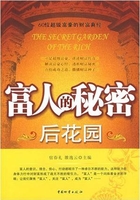Don t Follow the Follower
?厄尔·南丁格尔 / Earl Nightingale
95 percent of people never succeed because they’re following the wrong group.
Processionary caterpillars travel in long, undulating lines, one creature behind the other. Jean Hanri Fabre, the French entomologist, once lead a group of these caterpillars onto the rim of a large flowerpot so that the leader of the procession found himself nose to tail with the last caterpillar in the procession, forming a circle without end or beginning.
Through sheer force of habit and, of course, instinct, the ring of caterpillars circled the flowerpot for seven days and seven nights, until they died from exhaustion and starvation. An ample supply of food was close at hand and plainly visible, but it was outside the range of the circle, so the caterpillars continued along the beaten path.
People often behave in a similar way. Habit patterns and ways of thinking become deeply established, and it seems easier and more comforting to follow them than to cope with change, even when that change may represent freedom, achievement, and success.
If someone shouts, “Fire!” it is automatic to blindly follow the crowd, and many thousands have needlessly died because of it. How many stop to ask themselves: Is this really the best way out of here?
So many people “miss the boat” because it’s easier and more comforting to follow-to-follow without questioning the qualifications of the people just ahead—than to do some independent thinking and checking.
A hard thing for most people to fully understand is that people in such numbers can be so wrong, like the caterpillars going around and around the edge of the flowerpot, with life and food just a short distance away. If most people are living that way, it must be right, they think. But a little checking will reveal that throughout all recorded history the majority of mankind has an unbroken record of being wrong about most things, especially important things. For a time we thought the Earth was flat and later we thought the sun, stars, and planets traveled around the Earth.
Both ideas are now considered ridiculous, but at the time they were believed and defended by the vast majority of followers. In the hindsight of history we must have looked like those caterpillars blindly following the follower out of habit rather than stepping out of line to look for the truth.
It’s difficult for people to come to the understanding that only a small minority of people ever really get the word about life, about living abundantly and successfully. Success in the important departments of life seldom comes naturally, no more naturally than success at anything—a musical instrument, sports, fly-fishing, tennis, golf, business, marriage, parenthood.
But for some reason most people wait passively for success to come to them—like the caterpillars going around in circles, waiting for sustenance, following nose to tail—living as other people are living in the unspoken, tacit assumption that other people know how to live successfully.
It’s a good idea to step out of the line every once in a while and look around to see if the line is going where we want it to go. If it is not, it might be time for a new leader and a new direction.
95%的人从来没有成功过,只因为他们选择了错误的跟从对象。
毛虫排着长长的队伍爬行着,一个接着一个。法国昆虫学家吉恩·亨利·法布尔曾引导一支毛虫队伍来到一个大花盆的边沿上,领队的毛虫追上了队尾的那只,首尾相接,形成了一个圆圈。
完全出于习惯,当然还有本能的因素,这支队伍绕着花盆爬行了七天七夜,最后筋疲力尽,饥饿而死。其实在它们附近就有充足的食物,而且这些食物显而易见,只不过它们被放在了毛虫的圈外。毛虫就这样一直沿着错误的路线爬行下去。
人类也经常这样行事。当做事习惯与思考方式已经形成时,人们更容易遵循贯有的方式,而不是创新,即使这种改变可能意味着自由、功绩和成功。
如果有人喊“着火了”,人们就会无意识地、盲目地跟着人群跑,很多人就因此而白白丧生。有多少人停下来问问自己:这个方法真的是逃生的最佳方案吗?
太多人因为轻率地跟从而“错失了良机”。跟从总是比独立思考与检验更容易、更让人安心,盲从者对于领头的那个人的能力和资格丝毫没有质疑。
大多数人都难以理解,有如此多的人都会犯下这样的错误,就像在花盆上转了一圈又一圈的毛虫们,食物和生存的希望近在咫尺,最后还是被活活饿死。人们认为,如果大多数人都是这样生活的,那么这种生活方式就一定是正确的。但是,只需稍加验证便会发现,在整个历史长河中,大部分人对于许多事情的判断都是错误的,尤其是在一些重要的事情上。曾经,我们认为地球是方的,后来我们又认为太阳、星星和其他的行星都是围绕地球旋转的。
现在,人们认为这两个观点荒谬至极,但是在当时,人们都相信这是正确的,都支持它们。在后来的历史中,我们就像是那些盲目追随的毛虫,而不是跳出队伍寻求真理的人。
只有小部分的人曾经真正领悟生活的真谛,成功而精彩地生存。生活中重要领域的成功得来艰难,绝不比任何方面——弹奏乐器、体育运动、钓鱼、打网球、打高尔夫、经商、结婚或为人父母的成功来得容易,这实在令人难以理解。
但是,大多数人消极地等待成功不请自来——就像毛虫们首尾相连,一圈一圈地爬行着等待食物送上门来一样——默默地按照别人的生活方式生活着,暗自以为他人是懂得如何成功生活的。
不时地跳出常规路线,观望一下这条路是不是通向目的地,是个很不错的主意。如果不是,或许现在还来得及选择一个新的向导、新的方向。
1. Through sheer_______of habit and, of course, instinct, the ring of caterpillars circled the flowerpot for seven_______and seven nights, until they died_______exhaustion and starvation. An ample supply of food was close at_______and plainly visible, but it was_______the range of the circle, _______the caterpillars continued along the beaten path.
2. It’s a good_______to step out of the line every once in a while and look_______to see if the line is going where we_______it to go. If it is not, it might be time for a new_______and a new direction.
1. 95%的人从来没有成功过,只因为他们选择了错误的跟从对象。
2. 不时地跳出常规路线,观望一下这条路是不是通向目的地,这是个很不错的主意。
3. 如果不是,或许现在还来得及选择一个新的向导、新的方向。
1. ...than to cope with change, even when that change may represent freedom, achievement, and success.
cope with:对付;应付;克服
2. It’s a good idea to step out of the line every once in a while and look around to see if the line is going where we want it to go.
in a while:一会儿














